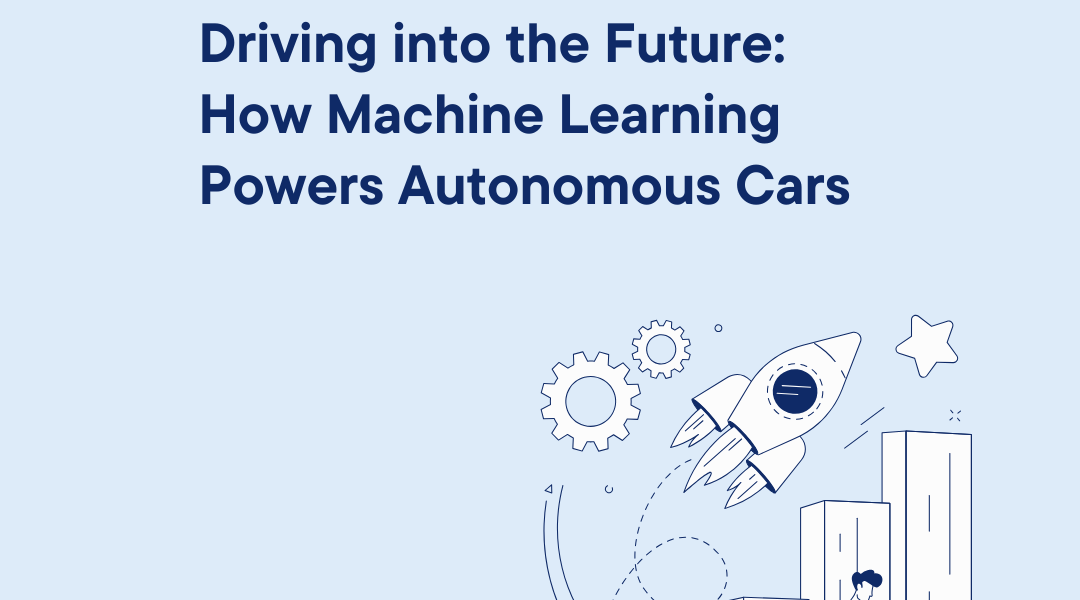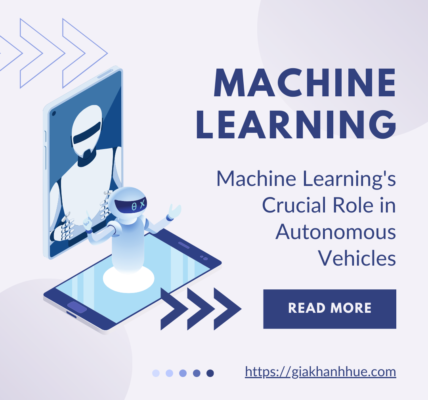As we accelerate into the future, the realm of transportation is undergoing a monumental shift, with autonomous cars at the forefront of this transformation. The secret sauce powering these futuristic vehicles is none other than machine learning, an advanced facet of artificial intelligence that’s steering the way towards a new era of mobility.
Machine learning is the linchpin of autonomous vehicle technology. It enables cars to process and learn from vast amounts of data, making real-time decisions that were once the sole purview of human drivers. This sophisticated technology doesn’t just mimic human intelligence; it surpasses it, offering unprecedented levels of efficiency, safety, and convenience.
The journey of an autonomous car begins with perception, where sensors, cameras, and radars gather data about the vehicle’s surroundings. Machine learning algorithms interpret this data, allowing the car to ‘see’ and navigate its environment. These algorithms are continually refined through deep learning, where neural networks analyze and learn from this data, enhancing the vehicle’s ability to make accurate predictions and decisions.
Predictive analytics is another critical aspect where machine learning shines. By analyzing patterns and behaviors, autonomous cars can anticipate the actions of other drivers and pedestrians, adjusting their route and speed accordingly. This predictive power is key to ensuring safety and fluidity in traffic, reducing the likelihood of accidents and creating a smoother driving experience.
Moreover, machine learning enables autonomous vehicles to adapt to various driving conditions and scenarios. Whether it’s adjusting to new traffic laws, handling different weather conditions, or navigating through construction zones, machine learning ensures that autonomous cars are equipped for the challenges of real-world driving.
However, the road to fully autonomous transportation isn’t without its bumps. Challenges such as ethical decision-making, data security, and the need for robust, error-free algorithms are areas where continuous research and development are crucial. Despite these challenges, the potential of machine learning to revolutionize transportation is undeniable.
Continuing the exploration into how machine learning is revolutionizing the automotive industry, it’s essential to acknowledge the broader societal and environmental impacts. Autonomous vehicles, powered by machine learning, are not just a technological marvel; they are a catalyst for more sustainable and efficient urban environments. Reduced traffic congestion and lower emissions are within reach as these vehicles can optimize driving patterns and decrease idle times.
The role of machine learning extends beyond the vehicle itself; it is pivotal in the development of intelligent transportation systems. These systems use data collected from various sources, including autonomous cars, to manage traffic flow and improve road safety. Machine learning algorithms analyze this data to provide real-time traffic predictions, suggest optimal routes, and reduce the likelihood of traffic jams, thereby enhancing the overall efficiency of transportation networks.
Furthermore, machine learning’s adaptability means that autonomous vehicles will continue to evolve and improve over time. As these vehicles are exposed to more diverse scenarios and accumulate more data, their algorithms will learn and adapt, leading to continuous enhancements in performance, safety, and reliability. This ongoing learning process is crucial for gaining public trust and acceptance, which is vital for the widespread adoption of autonomous vehicles.
However, the transition to a world dominated by autonomous vehicles is not without its challenges. Issues such as cybersecurity, privacy, and the ethical implications of decision-making algorithms must be addressed. The need for comprehensive regulatory frameworks and standards is clear to ensure that these vehicles are safe and that their benefits are realized by society as a whole.
In addition, there’s a need for a skilled workforce capable of developing, maintaining, and overseeing these advanced technologies. Education and training programs will be essential to equip the next generation of engineers, data scientists, and urban planners with the skills required to support this shift towards an autonomous future.
As we continue to drive into the future, the role of machine learning in powering autonomous cars is undeniably transformative. With the potential to improve safety, efficiency, and sustainability, the impact of these technologies extends far beyond the vehicles themselves. It’s an exciting time in the field of transportation, with machine learning at the helm, guiding us towards a smarter, safer, and more connected world. The journey is just beginning, and the possibilities are as vast as the road ahead.



